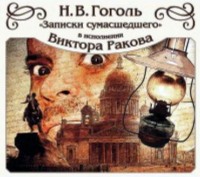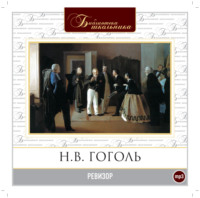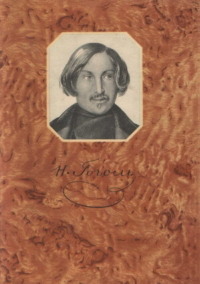 полная версия
полная версияThe Mantle, and Other Stories
In short, at this time every official betakes himself to some form of recreation – playing whist, drinking tea, and eating cheap pastry or smoking tobacco in long pipes. Some relate scandals about great people, for in whatever situation of life the Russian may be, he always likes to hear about the aristocracy; others recount well-worn but popular anecdotes, as for example that of the commandant to whom it was reported that a rogue had cut off the horse's tail on the monument of Peter the Great.
But even at this time of rest and recreation, Akaki Akakievitch remained faithful to his habits. No one could say that he had ever seen him in any evening social circle. After he had written as much as he wanted, he went to bed, and thought of the joys of the coming day, and the fine copies which God would give him to do.
So flowed on the peaceful existence of a man who was quite content with his post and his income of four hundred roubles a year. He might perhaps have reached an extreme old age if one of those unfortunate events had not befallen him, which not only happen to titular but to actual privy, court, and other councillors, and also to persons who never give advice nor receive it.
In St Petersburg all those who draw a salary of four hundred roubles or thereabouts have a terrible enemy in our northern cold, although some assert that it is very good for the health. About nine o'clock in the morning, when the clerks of the various departments betake themselves to their offices, the cold nips their noses so vigorously that most of them are quite bewildered. If at this time even high officials so suffer from the severity of the cold in their own persons that the tears come into their eyes, what must be the sufferings of the titular councillors, whose means do not allow of their protecting themselves against the rigour of winter? When they have put on their light cloaks, they must hurry through five or six streets as rapidly as possible, and then in the porter's lodge warm themselves and wait till their frozen official faculties have thawed.
For some time Akaki had been feeling on his back and shoulders very sharp twinges of pain, although he ran as fast as possible from his dwelling to the office. After well considering the matter, he came to the conclusion that these were due to the imperfections of his cloak. In his room he examined it carefully, and discovered that in two or three places it had become so thin as to be quite transparent, and that the lining was much torn.
This cloak had been for a long time the standing object of jests on the part of Akaki's merciless colleagues. They had even robbed it of the noble name of “cloak,” and called it a cowl. It certainly presented a remarkable appearance. Every year the collar had grown smaller, for every year the poor titular councillor had taken a piece of it away in order to repair some other part of the cloak; and these repairs did not look as if they had been done by the skilled hand of a tailor. They had been executed in a very clumsy way and looked remarkably ugly.
After Akaki Akakievitch had ended his melancholy examination, he said to himself that he must certainly take his cloak to Petrovitch the tailor, who lived high up in a dark den on the fourth floor.
With his squinting eyes and pock-marked face, Petrovitch certainly did not look as if he had the honour to make frock-coats and trousers for high officials – that is to say, when he was sober, and not absorbed in more pleasant diversions.
I might dispense here with dwelling on this tailor; but since it is the custom to portray the physiognomy of every separate personage in a tale, I must give a better or worse description of Petrovitch. Formerly when he was a simple serf in his master's house, he was merely called Gregor. When he became free, he thought he ought to adorn himself with a new name, and dubbed himself Petrovitch; at the same time he began to drink lustily, not only on the high festivals but on all those which are marked with a cross in the calendar. By thus solemnly celebrating the days consecrated by the Church, he considered that he was remaining faithful to the traditions of his childhood; and when he quarrelled with his wife, he shouted that she was an earthly minded creature and a German. Of this lady we have nothing more to relate than that she was the wife of Petrovitch, and that she did not wear a kerchief but a cap on her head. For the rest, she was not pretty; only the soldiers looked at her as they passed, then they twirled their moustaches and walked on, laughing.
Akaki Akakievitch accordingly betook himself to the tailor's attic. He reached it by a dark, dirty, damp staircase, from which, as in all the inhabited houses of the poorer class in St Petersburg, exhaled an effluvia of spirits vexatious to nose and eyes alike. As the titular councillor climbed these slippery stairs, he calculated what sum Petrovitch could reasonably ask for repairing his cloak, and determined only to give him a rouble.
The door of the tailor's flat stood open in order to provide an outlet for the clouds of smoke which rolled from the kitchen, where Petrovitch's wife was just then cooking fish. Akaki, his eyes smarting, passed through the kitchen without her seeing him, and entered the room where the tailor sat on a large, roughly made, wooden table, his legs crossed like those of a Turkish pasha, and, as is the custom of tailors, with bare feet. What first arrested attention, when one approached him, was his thumb nail, which was a little misshapen but as hard and strong as the shell of a tortoise. Round his neck were hung several skeins of thread, and on his knees lay a tattered coat. For some minutes he had been trying in vain to thread his needle. He was first of all angry with the gathering darkness, then with the thread.
“Why the deuce won't you go in, you worthless scoundrel!” he exclaimed.
Akaki saw at once that he had come at an inopportune moment. He wished he had found Petrovitch at a more favourable time, when he was enjoying himself – when, as his wife expressed it, he was having a substantial ration of brandy. At such times the tailor was extraordinarily ready to meet his customer's proposals with bows and gratitude to boot. Sometimes indeed his wife interfered in the transaction, and declared that he was drunk and promised to do the work at much too low a price; but if the customer paid a trifle more, the matter was settled.
Unfortunately for the titular councillor, Petrovitch had just now not yet touched the brandy flask. At such moments he was hard, obstinate, and ready to demand an exorbitant price.
Akaki foresaw this danger, and would gladly have turned back again, but it was already too late. The tailor's single eye – for he was one-eyed – had already noticed him, and Akaki Akakievitch murmured involuntarily “Good day, Petrovitch.”
“Welcome, sir,” answered the tailor, and fastened his glance on the titular councillor's hand to see what he had in it.
“I come just – merely – in order – I want – ”
We must here remark that the modest titular councillor was in the habit of expressing his thoughts only by prepositions, adverbs, or particles, which never yielded a distinct meaning. If the matter of which he spoke was a difficult one, he could never finish the sentence he had begun. So that when transacting business, he generally entangled himself in the formula “Yes – it is indeed true that – ” Then he would remain standing and forget what he wished to say, or believe that he had said it.
“What do you want, sir?” asked Petrovitch, scrutinising him from top to toe with a searching look, and contemplating his collar, sleeves, coat, buttons – in short his whole uniform, although he knew them all very well, having made them himself. That is the way of tailors whenever they meet an acquaintance.
Then Akaki answered, stammering as usual, “I want – Petrovitch – this cloak – you see – it is still quite good, only a little dusty – and therefore it looks a little old. It is, however, still quite new, only that it is worn a little – there in the back and here in the shoulder – and there are three quite little splits. You see it is hardly worth talking about; it can be thoroughly repaired in a few minutes.”
Petrovitch took the unfortunate cloak, spread it on the table, contemplated it in silence, and shook his head. Then he stretched his hand towards the window-sill for his snuff-box, a round one with the portrait of a general on the lid. I do not know whose portrait it was, for it had been accidentally injured, and the ingenious tailor had gummed a piece of paper over it.
After Petrovitch had taken a pinch of snuff, he examined the cloak again, held it to the light, and once more shook his head. Then he examined the lining, took a second pinch of snuff, and at last exclaimed, “No! that is a wretched rag! It is beyond repair!”
At these words Akaki's courage fell.
“What!” he cried in the querulous tone of a child. “Can this hole really not be repaired? Look! Petrovitch; there are only two rents, and you have enough pieces of cloth to mend them with.”
“Yes, I have enough pieces of cloth; but how should I sew them on? The stuff is quite worn out; it won't bear another stitch.”
“Well, can't you strengthen it with another piece of cloth?”
“No, it won't bear anything more; cloth after all is only cloth, and in its present condition a gust of wind might blow the wretched mantle into tatters.”
“But if you could only make it last a little longer, do you see – really – ”
“No!” answered Petrovitch decidedly. “There is nothing more to be done with it; it is completely worn out. It would be better if you made yourself foot bandages out of it for the winter; they are warmer than stockings. It was the Germans who invented stockings for their own profit.” Petrovitch never lost an opportunity of having a hit at the Germans. “You must certainly buy a new cloak,” he added.
“A new cloak?” exclaimed Akaki Akakievitch, and it grew dark before his eyes. The tailor's work-room seemed to go round with him, and the only object he could clearly distinguish was the paper-patched general's portrait on the tailor's snuff-box. “A new cloak!” he murmured, as though half asleep. “But I have no money.”
“Yes, a new cloak,” repeated Petrovitch with cruel calmness.
“Well, even if I did decide on it – how much – ”
“You mean how much would it cost?”
“Yes.”
“About a hundred and fifty roubles,” answered the tailor, pursing his lips. This diabolical tailor took a special pleasure in embarrassing his customers and watching the expression of their faces with his squinting single eye.
“A hundred and fifty roubles for a cloak!” exclaimed Akaki Akakievitch in a tone which sounded like an outcry – possibly the first he had uttered since his birth.
“Yes,” replied Petrovitch. “And then the marten-fur collar and silk lining for the hood would make it up to two hundred roubles.”
“Petrovitch, I adjure you!” said Akaki Akakievitch in an imploring tone, no longer hearing nor wishing to hear the tailor's words, “try to make this cloak last me a little longer.”
“No, it would be a useless waste of time and work.”
After this answer, Akaki departed, feeling quite crushed; while Petrovitch, with his lips firmly pursed up, feeling pleased with himself for his firmness and brave defence of the art of tailoring, remained sitting on the table.
Meanwhile Akaki wandered about the streets like a somnambulist, at random and without an object. “What a terrible business!” he said to himself. “Really, I could never have believed that it would come to that. No,” he continued after a short pause, “I could not have guessed that it would come to that. Now I find myself in a completely unexpected situation – in a difficulty that – ”
As he thus continued his monologue, instead of approaching his dwelling, he went, without noticing it, in quite a wrong direction. A chimney-sweep brushed against him and blackened his back as he passed by. From a house where building was going on, a bucket of plaster of Paris was emptied on his head. But he saw and heard nothing. Only when he collided with a sentry, who, after he had planted his halberd beside him, was shaking out some snuff from his snuff-box with a bony hand, was he startled out of his reverie.
“What do you want?” the rough guardian of civic order exclaimed. “Can't you walk on the pavement properly?”
This sudden address at last completely roused Akaki from his torpid condition. He collected his thoughts, considered his situation clearly, and began to take counsel with himself seriously and frankly, as with a friend to whom one entrusts the most intimate secrets.
“No!” he said at last. “To-day I will get nothing from Petrovitch – to-day he is in a bad humour – perhaps his wife has beaten him – I will look him up again next Sunday. On Saturday evenings he gets intoxicated; then the next day he wants a pick-me-up – his wife gives him no money – I squeeze a ten-kopeck piece into his hand; then he will be more reasonable and we can discuss the cloak further.”
Encouraged by these reflections, Akaki waited patiently till Sunday. On that day, having seen Petrovitch's wife leave the house, he betook himself to the tailor's and found him, as he had expected, in a very depressed state as the result of his Saturday's dissipation. But hardly had Akaki let a word fall about the mantle than the diabolical tailor awoke from his torpor and exclaimed, “No, nothing can be done; you must certainly buy a new cloak.”
The titular councillor pressed a ten-kopeck piece into his hand.
“Thanks, my dear friend,” said Petrovitch; “that will get me a pick-me-up, and I will drink your health with it. But as for your old mantle, what is the use of talking about it? It isn't worth a farthing. Let me only get to work; I will make you a splendid one, I promise!”
But poor Akaki Akakievitch still importuned the tailor to repair his old one.
“No, and again no,” answered Petrovitch. “It is quite impossible. Trust me; I won't take you in. I will even put silver hooks and eyes on the collar, as is now the fashion.”
This time Akaki saw that he must follow the tailor's advice, and again all his courage sank. He must have a new mantle made. But how should he pay for it? He certainly expected a Christmas bonus at the office; but that money had been allotted beforehand. He must buy a pair of trousers, and pay his shoemaker for repairing two pairs of boots, and buy some fresh linen. Even if, by an unexpected stroke of good luck, the director raised the usual bonus from forty to fifty roubles, what was such a small amount in comparison with the immense sum which Petrovitch demanded? A mere drop of water in the sea.
At any rate, he might expect that Petrovitch, if he were in a good humour, would lower the price of the cloak to eighty roubles; but where were these eighty roubles to be found? Perhaps he might succeed if he left no stone unturned, in raising half the sum; but he saw no means of procuring the other half. As regards the first half, he had been in the habit, as often as he received a rouble, of placing a kopeck in a money-box. At the end of each half-year he changed these copper coins for silver. He had been doing this for some time, and his savings just now amounted to forty roubles. Thus he already had half the required sum. But the other half!
Akaki made long calculations, and at last determined that he must, at least for a whole year, reduce some of his daily expenses. He would have to give up his tea in the evening, and copy his documents in his landlady's room, in order to economise the fuel in his own. He also resolved to avoid rough pavements as much as possible, in order to spare his shoes; and finally to give out less washing to the laundress.
At first he found these deprivations rather trying; but gradually he got accustomed to them, and at last took to going to bed without any supper at all. Although his body suffered from this abstinence, his spirit derived all the richer nutriment from perpetually thinking about his new cloak. From that time it seemed as though his nature had completed itself; as though he had married and possessed a companion on his life journey. This companion was the thought of his new cloak, properly wadded and lined.
From that time he became more lively, and his character grew stronger, like that of a man who has set a goal before himself which he will reach at all costs. All that was indecisive and vague in his gait and gestures had disappeared. A new fire began to gleam in his eyes, and in his bold dreams he sometimes even proposed to himself the question whether he should not have a marten-fur collar made for his coat.
These and similar thoughts sometimes caused him to be absent-minded. As he was copying his documents one day he suddenly noticed that he had made a slip. “Ugh!” he exclaimed, and crossed himself.
At least once a month he went to Petrovitch to discuss the precious cloak with him, and to settle many important questions, e.g. where and at what price he should buy the cloth, and what colour he should choose.
Each of these visits gave rise to new discussions, but he always returned home in a happier mood, feeling that at last the day must come when all the materials would have been bought and the cloak would be lying ready to put on.
This great event happened sooner than he had hoped. The director gave him a bonus, not of forty or fifty, but of five-and-sixty roubles. Had the worthy official noticed that Akaki needed a new mantle, or was the exceptional amount of the gift only due to chance?
However that might be, Akaki was now richer by twenty roubles. Such an access of wealth necessarily hastened his important undertaking. After two or three more months of enduring hunger, he had collected his eighty roubles. His heart, generally so quiet, began to beat violently; he hastened to Petrovitch, who accompanied him to a draper's shop. There, without hesitating, they bought a very fine piece of cloth. For more than half a year they had discussed the matter incessantly, and gone round the shops inquiring prices. Petrovitch examined the cloth, and said they would not find anything better. For the lining they chose a piece of such firm and thickly woven linen that the tailor declared it was better than silk; it also had a splendid gloss on it. They did not buy marten fur, for it was too dear, but chose the best catskin in the shop, which was a very good imitation of the former.
It took Petrovitch quite fourteen days to make the mantle, for he put an extra number of stitches into it. He charged twelve roubles for his work, and said he could not ask less; it was all sewn with silk, and the tailor smoothed the sutures with his teeth.
At last the day came – I cannot name it certainly, but it assuredly was the most solemn in Akaki's life – when the tailor brought the cloak. He brought it early in the morning, before the titular councillor started for his office. He could not have come at a more suitable moment, for the cold had again begun to be very severe.
Petrovitch entered the room with the dignified mien of an important tailor. His face wore a peculiarly serious expression, such as Akaki had never seen on it. He was fully conscious of his dignity, and of the gulf which separates the tailor who only repairs old clothes from the artist who makes new ones.
The cloak had been brought wrapped up in a large, new, freshly washed handkerchief, which the tailor carefully opened, folded, and placed in his pocket. Then he proudly took the cloak in both hands and laid it on Akaki Akakievitch's shoulders. He pulled it straight behind to see how it hung majestically in its whole length. Finally he wished to see the effect it made when unbuttoned. Akaki, however, wished to try the sleeves, which fitted wonderfully well. In brief, the cloak was irreproachable, and its fit and cut left nothing to be desired.
While the tailor was contemplating his work, he did not forget to say that the only reason he had charged so little for making it, was that he had only a low rent to pay and had known Akaki Akakievitch for a long time; he declared that any tailor who lived on the Nevski Prospect would have charged at least five-and-sixty roubles for making up such a cloak.
The titular councillor did not let himself be involved in a discussion on the subject. He thanked him, paid him, and then sallied forth on his way to the office.
Petrovitch went out with him, and remained standing in the street to watch Akaki as long as possible wearing the mantle; then he hurried through a cross-alley and came into the main street again to catch another glimpse of him.
Akaki went on his way in high spirits. Every moment he was acutely conscious of having a new cloak on, and smiled with sheer self-complacency. His head was filled with only two ideas: first that the cloak was warm, and secondly that it was beautiful. Without noticing anything on the road, he marched straight to the chancellery, took off his treasure in the hall, and solemnly entrusted it to the porter's care.
I do not know how the report spread in the office that Akaki's old cloak had ceased to exist. All his colleagues hastened to see his splendid new one, and then began to congratulate him so warmly that he at first had to smile with self-satisfaction, but finally began to feel embarrassed.
But how great was his surprise when his cruel colleagues remarked that he should formally “handsel” his cloak by giving them a feast! Poor Akaki was so disconcerted and taken aback, that he did not know what to answer nor how to excuse himself. He stammered out, blushing, that the cloak was not so new as it appeared; it was really second-hand.
One of his superiors, who probably wished to show that he was not too proud of his rank and title, and did not disdain social intercourse with his subordinates, broke in and said, “Gentlemen! Instead of Akaki Akakievitch, I will invite you to a little meal. Come to tea with me this evening. To-day happens to be my birthday.”
All the others thanked him for his kind proposal, and joyfully accepted his invitation. Akaki at first wished to decline, but was told that to do so would be grossly impolite and unpardonable, so he reconciled himself to the inevitable. Moreover, he felt a certain satisfaction at the thought that the occasion would give him a new opportunity of displaying his cloak in the streets. This whole day for him was like a festival day. In the cheerfullest possible mood he returned home, took off his cloak, and hung it up on the wall after once more examining the cloth and the lining. Then he took out his old one in order to compare it with Petrovitch's masterpiece. His looks passed from one to the other, and he thought to himself, smiling, “What a difference!”
He ate his supper cheerfully, and after he had finished, did not sit down as usual to copy documents. No; he lay down, like a Sybarite, on the sofa and waited. When the time came, he made his toilette, took his cloak, and went out.
I cannot say where was the house of the superior official who so graciously invited his subordinates to tea. My memory begins to grow weak, and the innumerable streets and houses of St Petersburg go round so confusedly in my head that I have difficulty in finding my way about them. So much, however, is certain: that the honourable official lived in a very fine quarter of the city, and therefore very far from Akaki Akakievitch's dwelling.
At first the titular councillor traversed several badly lit streets which seemed quite empty; but the nearer he approached his superior's house, the more brilliant and lively the streets became. He met many people, among whom were elegantly dressed ladies, and men with beaverskin collars. The peasants' sledges, with their wooden seats and brass studs, became rarer; while now every moment appeared skilled coachmen with velvet caps, driving lacquered sleighs covered with bearskins, and fine carriages.
At last he reached the house whither he had been invited. His host lived in a first-rate style; a lamp hung before his door, and he occupied the whole of the second story. As Akaki entered the vestibule, he saw a long row of galoshes; on a table a samovar was smoking and hissing; many cloaks, some of them adorned with velvet and fur collars, hung on the wall. In the adjoining room he heard a confused noise, which assumed a more decided character when a servant opened the door and came out bearing a tray full of empty cups, a milk-jug, and a basket of biscuits. Evidently the guests had been there some time and had already drunk their first cup of tea.









